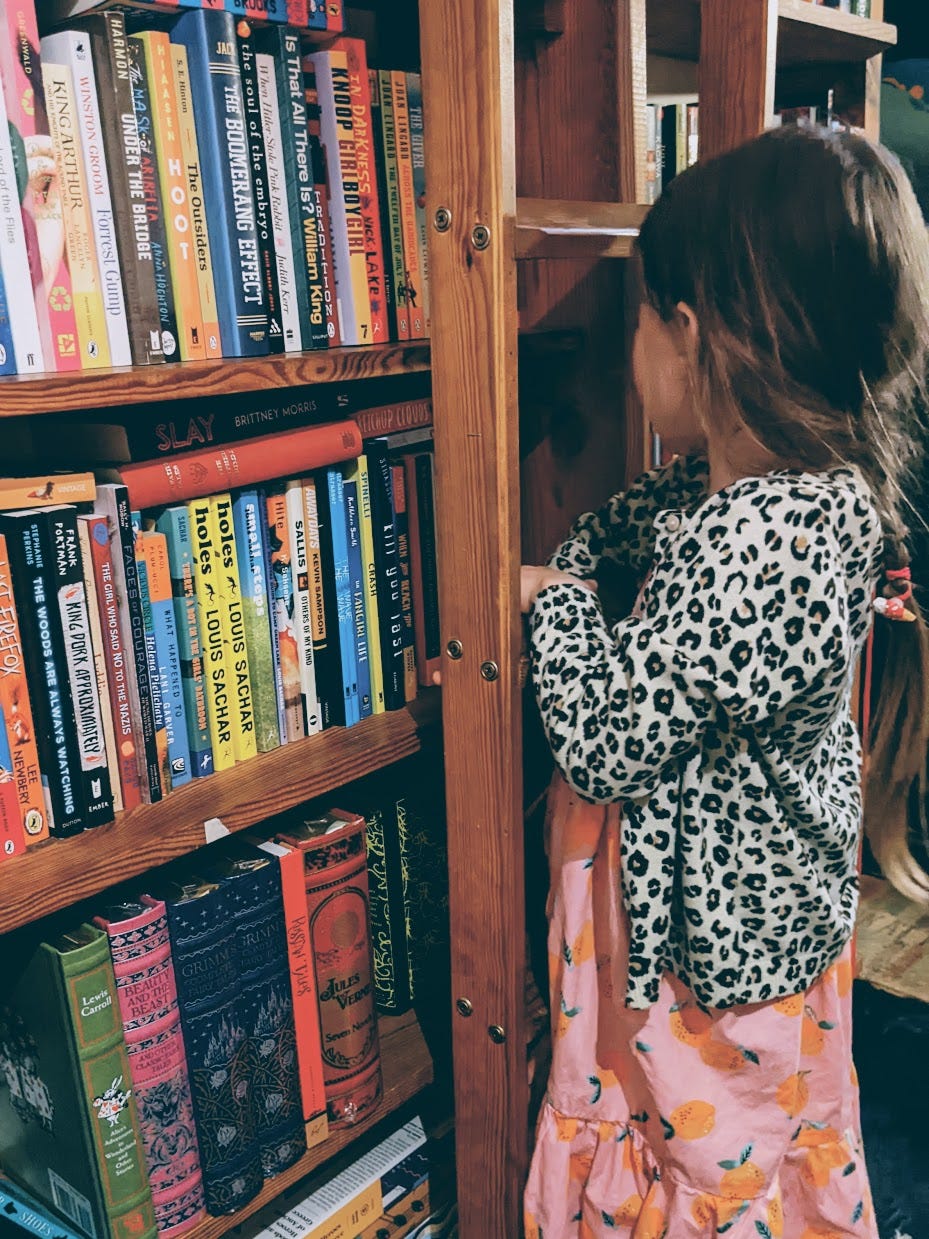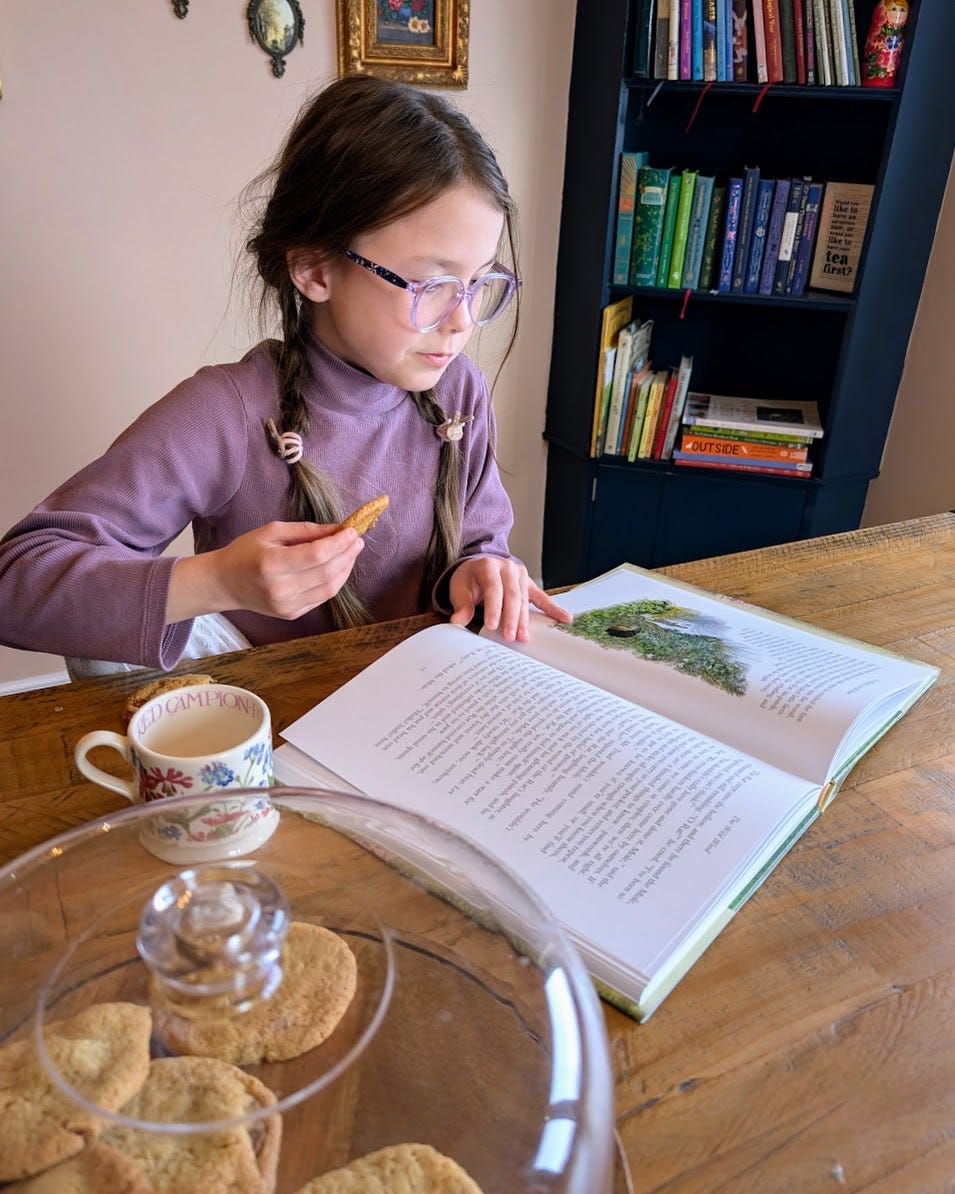Bedtime reading beyond the early years
+ ways to make regular reading a habit
My daughter is 9 years-old, but I still read her a bedtime story every evening.
She’s won many awards at school for her reading. She’s read many classic chapter books independently. And as is so often the case with many avid readers, her stories are, to quote her teacher, ‘incredible’.
I’m aware that this is beginning to sound like an insufferable ‘show-off’ post, however, that really isn’t my point.
My point is, despite all of this, I continue to read aloud to her at bedtime.
A common misconception is that, once a child reaches a perceived 'independent' reading stage, bedtime stories are no longer needed. However, there are still many incredible benefits in reading aloud in the middle years of childhood (and beyond).
In fact, I think that read aloud sessions are so important that I always recommend it to the parents of the children I tutor at The Cottage Classroom
Reading aloud is first and foremost, a great way to build connection. When life is busy, sitting down at the end of the day to read is a wonderful way to spend time together.

Once you've past the picture book stage, chapter books are a great way to help your child widen their vocabulary. We mix classic stories with modern favourites, as we tend to find classic stories rich in language.
Whilst I was reading A Little Princess by Frances Hodgson Burnett to my daughter, we came across the word 'disconsolate' and she asked what that meant. We talked about using the text for clues and using a dictionary to look up the definition. By demonstrating what do when facing an unfamiliar word, my daughter knows what to do when she reads independently.
By reading aloud, you also teach your children how to read with expression. This can be difficult for emerging readers who need to work hard to sound out words. However, I’ve noticed, by demonstrating expression and changing character voice, all three of my children have been able to use expression in their own reading without being prompted to do so.
By continuing to read aloud in the middle years and beyond, you demonstrate the importance of reading. And whilst I’ve focused on my daughter in this post, both of my son’s (aged 7 and 16), have also built regular reading habits from our read aloud sessions.
As the BookTrust open letter 'Reading Together' states,
'Reading with children may sound like something which is nice to have in life, rather than something which is essential, but nothing could be further from the truth.'
But all this can be easier said than done. What about time? What about the expense?
Here's a few ideas:
- Make reading part of your regular daily rhythm so that it becomes a habit
- Join the library and visit regularly
-Initiate a book swap with friends and family
-Listen to audiobooks and podcasts
-Request books as gifts for birthdays and Christmas
What else would you suggest? I'd love to hear your thoughts.




